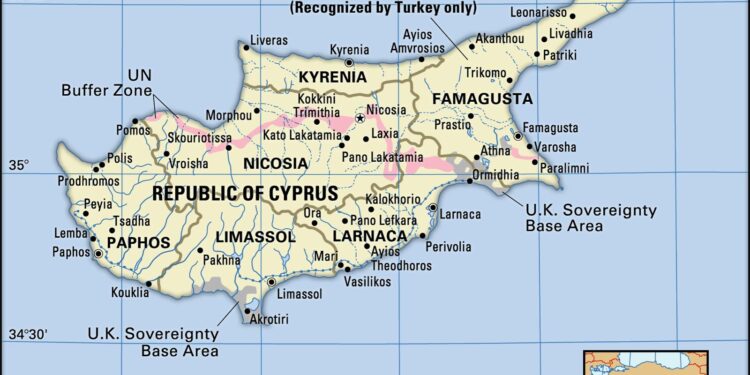The International Monetary Fund (IMF) has released its 2025 Article IV Consultation press statement and accompanying staff report on Cyprus, presenting a comprehensive assessment of the island nation’s economic outlook and policy challenges. The report underscores Cyprus’s steady recovery amid global uncertainties, highlighting key areas such as fiscal stability, banking sector resilience, and structural reforms aimed at sustaining growth. As Cyprus navigates external pressures including inflationary trends and geopolitical tensions, the IMF’s evaluation provides critical insights into the country’s macroeconomic health and the policy measures needed to bolster its economic resilience going forward.
Cyprus Economic Outlook and Growth Prospects in 2025
The Cypriot economy is projected to sustain a moderate growth trajectory in 2025, underpinned by strong domestic demand and a recovering tourism sector. Despite persistent global uncertainties, including geopolitical tensions and commodity price fluctuations, Cyprus continues to leverage its strategic location and diversified economy to maintain resilience. The International Monetary Fund (IMF) highlights the significance of ongoing reforms aimed at enhancing fiscal consolidation, improving the investment climate, and strengthening the financial sector’s robustness. Key sectors such as real estate, financial services, and information technology remain crucial pillars driving growth and employment opportunities.
However, the country faces macroeconomic challenges that require vigilant policy management. Inflationary pressures and supply chain disruptions could dampen consumer confidence and affect business investment. The IMF recommends targeted measures to mitigate potential risks, including:
- Enhancing tax policy to widen the revenue base
- Advancing digital transformation in public services
- Promoting green investments to meet EU climate targets
- Strengthening social safety nets to protect vulnerable groups
Below is a summary table of Cyprus’ key economic indicators for 2024 and projected figures for 2025:
| Indicator | 2024 (Est.) | 2025 (Proj.) |
|---|---|---|
| GDP Growth Rate | 3.4% | 3.1% |
| Inflation Rate | 2.8% | 2.5% |
| Unemployment Rate | 7.1% | 6.8% |
| Fiscal Deficit | 1.9% of GDP | 1.5% of GDP |
Key Challenges and Policy Priorities Highlighted by IMF Staff
The IMF staff underscore that Cyprus faces a complex mix of economic and structural challenges that require urgent policy attention. Among the key obstacles, the persistence of high public debt levels and vulnerabilities within the banking sector remain critical. The staff emphasize the need for sustained fiscal consolidation to safeguard macroeconomic stability, particularly by enhancing revenue mobilization and controlling public expenditure. Additionally, structural reforms aimed at boosting competitiveness and diversifying the economic base are essential to ensure long-term growth and resilience against external shocks.
Priority areas for policy focus include reinforcing financial sector supervision, accelerating labor market reforms, and investing in innovation and digital transformation. The IMF also highlights the importance of environmental sustainability in shaping future economic policies, urging Cyprus to integrate climate considerations into its development strategy. The following table summarizes the main challenges and recommended policy responses:
| Challenge | Policy Priority |
|---|---|
| High Public Debt | Fiscal consolidation & expenditure control |
| Banking Sector Vulnerabilities | Enhanced financial supervision & asset quality improvement |
| Economic Concentration | Structural reforms & economic diversification |
| Labor Market Rigidities | Labor reform & skills development |
| Climate Change Risks | Green investments & sustainability integration |
Recommended Reforms to Strengthen Fiscal and Financial Stability
To enhance fiscal resilience and safeguard long-term financial stability, the IMF staff report emphasizes the necessity for Cyprus to undertake comprehensive reforms targeting public expenditure management and revenue mobilization. Strengthening the efficiency of public investment and tightening controls over recurrent spending should be priorities. Equally important is the enhancement of tax administration to reduce evasion and broaden the tax base, which will help secure more sustainable fiscal outcomes without undermining growth prospects.
Key reform measures include:
- Implementing medium-term budget frameworks to improve fiscal discipline and transparency
- Advancing financial sector reforms to strengthen bank balance sheets and reduce non-performing loans
- Developing mechanisms to better identify and manage contingent liabilities
- Enhancing regulatory oversight and risk assessment frameworks within the financial sector
- Promoting digitalization of tax systems to increase compliance and efficiency
| Reform Area | Expected Impact |
|---|---|
| Public Spending Controls | Reduced fiscal deficits & improved resource allocation |
| Tax System Enhancement | Increased revenue collection & broader tax base |
| Financial Sector Resilience | Lower banking sector vulnerabilities & stabilized credit growth |
In Conclusion
As Cyprus continues to navigate the complex challenges of post-pandemic recovery and regional uncertainties, the IMF’s 2025 Article IV Consultation underscores both the resilience of the island’s economy and the areas requiring vigilant policy support. The Staff Report highlights progress in fiscal consolidation and structural reforms, while emphasizing the need for sustained efforts to bolster competitiveness and financial stability. Moving forward, close cooperation between Cypriot authorities and international partners will remain crucial to ensuring steady growth and economic stability in the years ahead.














